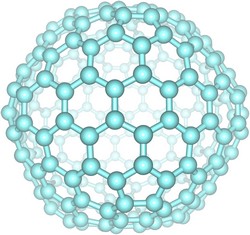Fullerene composites for cleaner air
Air-conditioners and cooling towers can serve as a breeding ground for pathogens. This is detrimental to our health and the environment. Another area of concern as a result of microbial activity is global food security due to food spoilage. Fullerenes are non-toxic carbon molecules in the form of hollow spheres or other shapes. In the presence of oxygen and light, fullerenes transform stable oxygen into the unstable singlet oxygen state, which has an inhibitory effect on pathogens. The project NANO_GUARD(opens in new window) (Fullerene-based systems for oxidative inactivation of airborne microbial pathogens) worked on improving air quality using nanocomposites in air conditioners. Through international research collaborations, project members also facilitated knowledge exchange and enhanced research capacity. Project members characterised and synthesised nano-patterned thin and thick films of fullerene-based nano-composites as well as nanometal oxides-based systems. They controlled crystalline structure, porosity and surface state using techniques like tape casting, print screen and high pressure compacting. Through vacuum deposition, researchers embedded fullerene molecules onto porous matrices such as zirconia and alumina nanoceramics. They then modified the design of the fullerene- and nanometal-based oxidative systems based on the test results obtained from materials' photosensitisation using visible and solar irradiation. NANO_GUARD focused on determining the efficacy of fullerene-based and nanometal-based oxidative systems in inhibiting different bacterial, viral and fungal pathogens of in liquid and air. Besides biocompatibility testing, researchers also determined optimal parameters to maximise system performance. An interesting development, researchers evaluated the ability of C60-based composites to inhibit amyloid fibrils formation. This could prove invaluable in treating the neurodegenerative Alzheimer's disease. Research results led to the finalisation and development of lab-based fullerene- and nanometal-oxides-based NANO_GUARD prototypes. These demonstrated high antimicrobial and/or antiviral performance under light irradiation. Ultimately, NANO-GUARD activities should realise the commercialisation of cheap, eco-friendly air treatment systems. This would improve air quality in homes, offices and classrooms as well as storehouses and warehouses.







